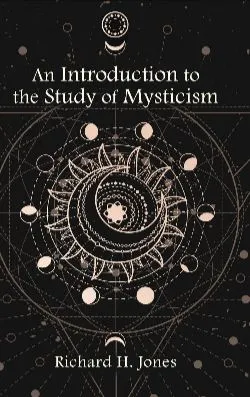
This is a very interesting book, and it does what it says in the title. The work is an introduction to the study of mysticism, not an introduction to mysticism as such. I think that Jones would agree that the latter task would be an impossible one, as reiterates throughout the text that there is no single “mysticism.” This is not to say that mysticism is a useful concept: it is more like “language”–a unifying principle of several other categories.
In Jones view, mysticism is not merely about mystical experiences, it is a way of life. Mystical experiences are important to this way of life, and Jones argues that the experiences are ones where the “self” seems to merge with the rest of existence, or reality, according to the belief systems of the given individual. There are two major types of mystical experiences: “extroverted,” where the individual feels a general connectedness with all things; and “introverted,” where the individual wholly stops feeling any sort of self/other distinction at all. Introverted experiences cannot be defined while the experiencer undergoes the experience: it can only be discussed afterwards, once the experiencer has reverted to the self/other distinction. These experiences, significantly, are important for the mystic, because they allow him/her to adjust their way of being, living according to reality as it really is.
Jones argues that, in spite of the umbrella term “mysticism,” mystics interpret their experiences in markedly different ways. Sufis, for instance, discuss union with God, while Buddhists might discuss the illusory nature of reality.
The chapters in here are largely about thematic approaches: what is the relationship between mysticism and science–and what can neurology tell us (are they “true” experiences at all, or merely the glowing of one section of the brain under an MRI?)? What is the relationship between meditation and mysticism? How have a number of different disciplines approached the field? Are psychedelic trips “true” mystical experiences, or are they something else? What’s the deal with the “ineffable” anyways?
For the most part, Jones is remarkably fair. He puts forward various arguments, according to the theme, and highlights their limitations. There are no definitive answers in this book, but there are plenty of avenues for further study.
I don’t quite agree with Jones in his pluralism of mysticism. While I do agree that there are major differences between a variety of practices, I tend to agree with one camp of perennialists: there are many paths to one summit, and mystical experiences occur when a person taps into the “source.” They are not the only incarnation of the source, but they may well be the most powerful.
I was disappointed to read in the final two content chapters that religious studies and theologians don’t really take mystical experiences seriously. Maybe this is to be expected, with the importance of secularism (including within religious organizations), but–given that mystical experiences seem to resonate with so many people, including those who have not undergone them–it seems to be a particularly fruitful area of study.
The book is scholarly, and you won’t learn a ton about how to be a mystic, but you will learn plenty about the way academics discuss mysticism, and I think that’s good enough.